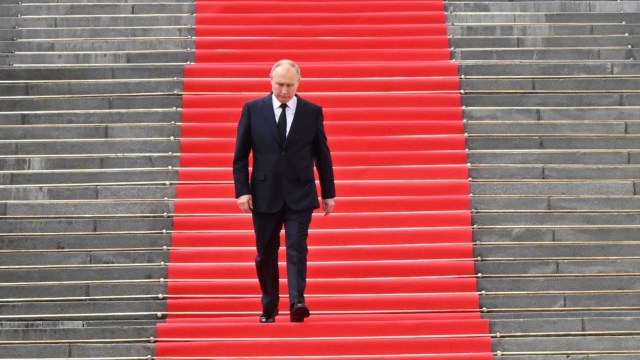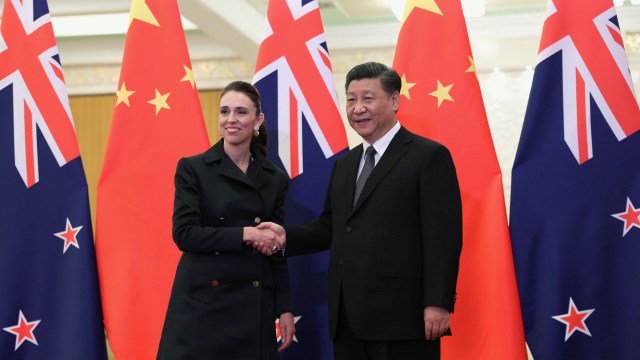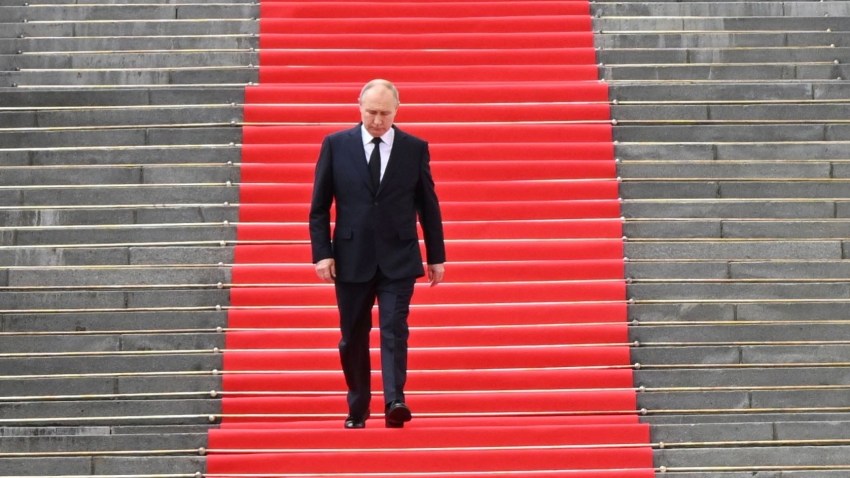Hello everyone. Today at WPR, we’re covering what the Wagner mutiny means for Putin’s grip on power and the biggest takeaways from Germany’s first-ever National Security Strategy.
Read all of our latest coverage here.
Now, here’s our take on today’s top stories:
EU migrant crisis: The human rights chief at the EU’s Frontex border agency said last week that it may suspend operations in Greece because of chronic human rights abuses, the New York Times reports.
Our Take: Greece has long been at the frontlines of Europe’s migrant crisis, and current PM Kyriakos Mitsotakis has adopted a hard-line stance on the issue since taking office in 2019, including credible reports of engaging in illegal “pushbacks” of migrants from Greek waters and territory. For years, the EU has chosen to look the other way, in part because Greece’s approach serves the EU’s interests, as migration has become a more politically polarizing issue across member states.
The assessment by Frontex’s human rights chief was notably written before the latest tragedy in the Mediterranean—in which more than 600 people lost their lives when a boat carrying migrants capsized in full view of the Greek coast guard—put the issue back in the spotlight. Whether or not the border agency pulls out of Greece, the migrant crisis, and the controversy surrounding the Greek government’s response to it, will not be abating anytime soon.
*****
Wagner in Africa: Russian Foreign Minister Sergey Lavrov said that Wagner Group fighters currently deployed to countries in Africa will not be withdrawn following last weekend’s mutiny by the group’s leader, Yevgeny Prigozhin. (Guardian)
Our Take: Russia will almost certainly seek to maintain the security foothold in Africa that the Wagner Group has carved out, either by maintaining Wagner’s forces or integrating the group’s fighters into a formal Russian military presence.
That said, Wagner’s role in Africa is often exaggerated. It largely amounts to a rapacious and brutal security force that serves to secure regime survival in Mali and the Central African Republic, while also filling Wagner’s coffers. Elsewhere, Wagner’s presence has for the most part either been a failure or not a significant factor in shaping domestic dynamics, though it has come at great cost to civilian populations everywhere it has operated.
More Context from WPR:
- Chris Ògúnmọ́dẹdé on why fears of a Russian ‘return’ to Africa are overblown.
- Vianney Ingasso, John Lechner and Marcel Plichta on why Wagner’s involvement in the Central African Republic is just one piece of the puzzle.
*****
You can read the rest of today’s News Wire, a curated selection of one must-read article from every region, here.

Columnist Alexander Clarkson argues that the crisis in Russia last weekend may not mean that Putin’s grip on power has been weakened, but it does demonstrate that the power of the Russian state he is gripping has been weakened. That will become a problem when Putin eventually—and inevitably—leaves office.

The Wagner Mutiny Was a Preview of Russia’s Post-Putin Civil War
The short-lived mutiny by Yevgeny Prigozhin’s Wagner Group is an indication of how Russian politics may play out after Putin. Read more.
Meanwhile, Germany recently released its inaugural National Security Strategy, a much-hyped roadmap for the so-called Zeitenwende, or turning point, in Berlin’s national security posture.
Aaron Allen breaks down the major takeaways from what is, and isn’t, in the document:
Germany’s National Security Strategy Is a Roadmap Without a Destination
Germany’s highly anticipated inaugural National Security Strategy marks a defense and foreign policy shift, but has some missing elements. Read more.

We want to hear your take on the issues we cover.
This week’s question: In a column last week, Paul Poast argued that despite how influential Big Tech companies and their billionaire CEOs have become, they won’t ever rival or supplant sovereign nations in international politics. What’s your take?
Just reply to this email to give us your response, along with your name and where you’re based. We’ll include the best ones we receive in the Daily Review over the course of the week. Those selected will also receive a free month of WPR.

New Zealand PM Chris Hipkins visited China this week, where he signed a range of agreements to boost bilateral cooperation.
Successive New Zealand governments have taken a conciliatory stance in recent years toward China, which remains the country’s largest trading partner, even as public opinion has shifted in the opposite direction, as Geoffrey Miller wrote in February.

For New Zealand After Ardern, China Remains a Tricky Balancing Act
Feb. 1, 2023 | After Jacinda Ardern’s surprise departure as New Zealand’s prime minister, relations with China will remain a challenge. Read more.
*****
Mexico is likely to hand over control of its busiest airport to the country’s navy, the latest example of the armed forces’ expanded influence in nonmilitary roles under President Andres Manuel Lopez Obrador.
AMLO Doubles Down on Mexico’s Failed Security Policy
Sept. 12, 2022 | Mexican President AMLO says he wants to punish those involved in a military atrocity. But his policies don’t prevent it from happening again. Read more.
That’s all for today’s Daily Review. Coming up, we’ve got stories on the Sahel’s security crisis and Netflix’s “The Diplomat.”
Have a great day,
Jakob Cansler
More From WPR
- Erin Cook on the legacy Jokowi will leave in Indonesia.
- Aude Darnal on why the world isn’t waiting for the U.S. to strengthen multilateralism.
- James Bosworth on Peru’s dengue outbreak.
- Jonathan Fenton-Harvey on Gulf states’ renewable energy push.

